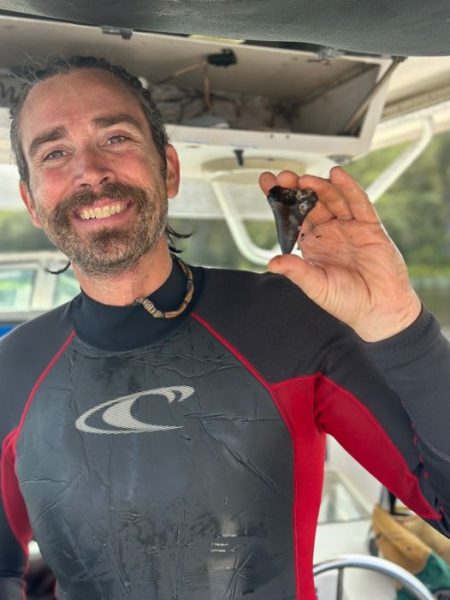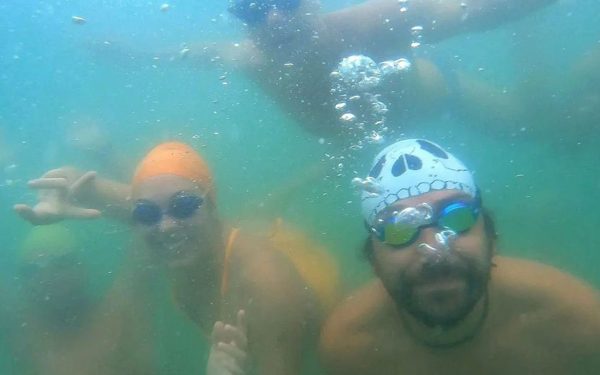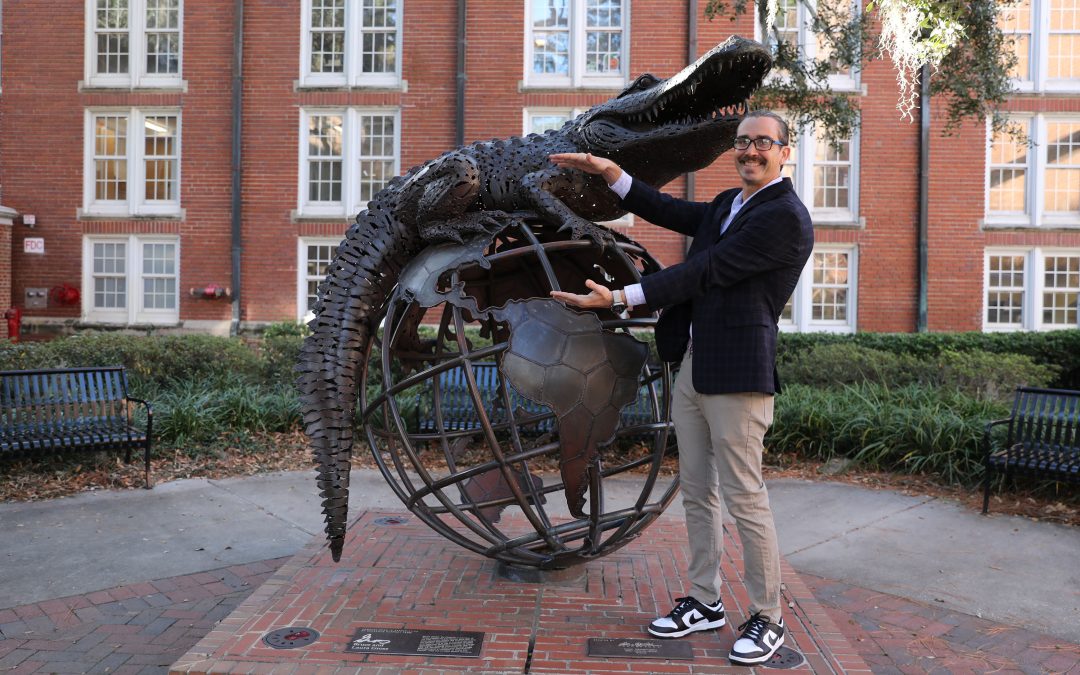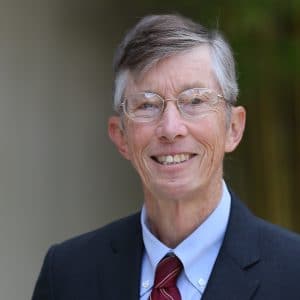Underwater academic
From scuba diving to professorship at the University of Florida.
Most academics start their careers inside the classroom. Associate Professor Trevor Foulk started his in the ocean.

Trevor Foulk displays a souvenir from a recent dive.
The new faculty member and alumnus of the University of Florida Warrington College of Business was making waves in his career as a professional scuba diving instructor, but when his role shifted to more managerial responsibilities at his diving company in Washington, D.C., he sensed a change in the tide.
“It was a really fun and exciting experience,” he enthused. “I was teaching people to dive, traveling all over the world taking people diving and running a business. That experience might seem a little disconnected from what I do now, but in many ways it was the motivation to pursue my Ph.D.”
Managing over 100 employees and volunteers sparked Foulk’s curiosity about how to become a better manager. Upon earning his doctorate in management at the University of Florida in 2017, Foulk continued exploring the field through a faculty position at the University of Maryland Robert H. Smith School of Business. His positive experiences in Florida made moving back an easy choice when he recently joined the management department at the Warrington College of Business.
“My family and I fell in love with Florida, with Gainesville and with UF – it kind of became home for us,” he said. “So, when I was offered the opportunity to come back, it was a pretty easy decision. I’m a Gator in my heart, so I’m very excited to be back and to have the opportunity to contribute to the community at UF.”
Entering academia with managerial experience from his time as a business owner emphasizes the practicality of Foulk’s courses on organizational behavior (MAN5245) and developing leadership skills (MAN6140). Through these courses, he empowers students to consider common workplace issues, like demotivation, how to overcome them using empirical data and how to develop their identities as leaders to be more effective in their careers. His favorite part of teaching, he says, is when he sees course material inspiring real-time solutions in students’ professional lives.

Trevor Foulk with a crew of divers.
“It’s very easy to identify the problems and challenges associated with dealing with other people at work,” he said. “Sometimes the solutions are not as easy to come by. When students are able to take what we’re talking about in class and apply it to a problem they’re experiencing, I find that really exciting and motivating.”
One of the biggest takeaways that Foulk impresses on his students is that our instincts are often dead wrong. Managers can carry false confidence because they believe they have an intuitive understanding of people and how they work, only to find that data from empirical studies proves their assumptions are incorrect, Foulk says.
Fortunately, the data also shows that seemingly impossible problems can usually be overcome with simple solutions. Slowing down and paying attention to the research is the best advice Foulk offers to students who continually wow him with their aptitude and work ethic.
“The more I work with MBA students, the more I’m amazed at how much they are accomplishing at once, and it makes me want to be a better teacher,” he said. “It has challenged me to empathize with them, which also helps me identify situations for them where I think they could be more empathetic with others.”
This year, Foulk was honored with the Society for Industrial and Organizational Psychology’s Early Career Award for Contributions to Science. The award marks his rise in academia since transitioning from his career as a diving instructor and business owner.
A career in academia may have satisfied Foulk’s curiosity about becoming a better manager, or it may have opened a door that’s inspired more curiosity than ever. Next time you see Foulk, on campus or out training for his upcoming Ironman Triathlon, be sure to ask what inspires him to keep diving into management.




